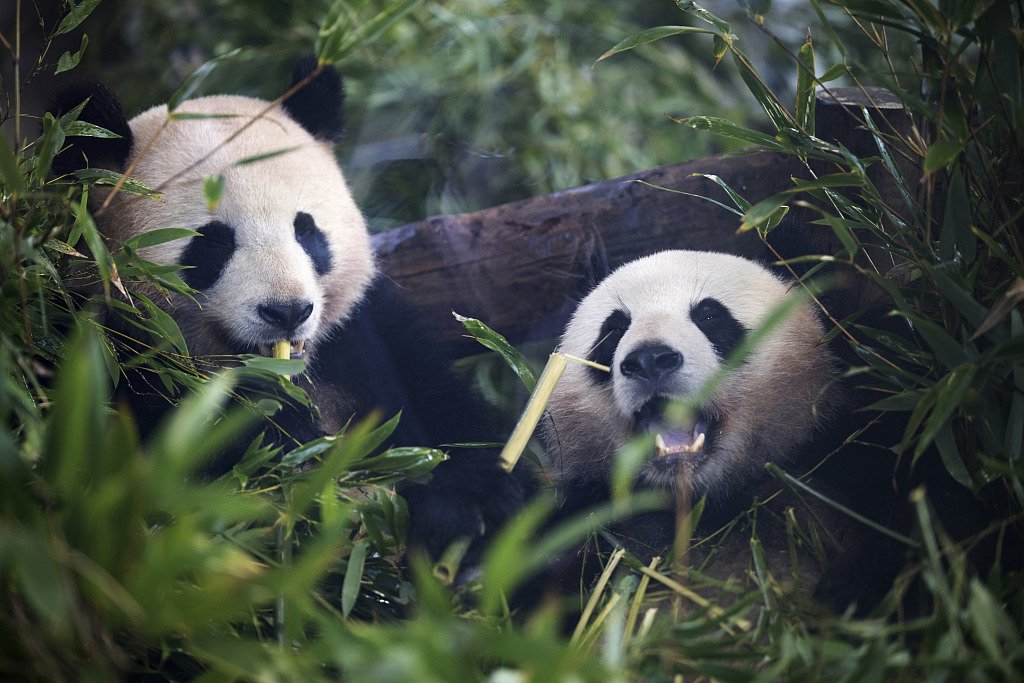Meng Xiang and Meng Yuan, the celebrated giant panda twins born in Germany, have commenced a new chapter in their lives with their arrival in Chengdu, the capital city of Sichuan Province in southwest China, on Sunday. Their relocation marks a significant milestone in the cooperative efforts in giant panda conservation between China and Germany.
Under an agreement between the two countries, it was decided that the panda twins would be transferred to the Chengdu Research Base of Giant Panda Breeding when they turned four years old. This renowned institution is dedicated to the scientific research and breeding of giant pandas, making it an ideal new home for Meng Xiang and Meng Yuan.
The twins’ parents, Meng Meng and Jiao Qing, were originally sent to Berlin from Chengdu in 2017, becoming the only giant pandas in Germany. Meng Xiang and Meng Yuan, affectionately known as Pit and Paule, were born on August 31, 2019, and celebrated their fourth and final birthday in Germany this summer.
In anticipation of their departure, Zoo Berlin organized a heartfelt farewell ceremony earlier this month. Berlin Mayor Kai Wegner, reflecting on the joy the panda twins brought to Berliners and tourists alike, remarked on the bittersweet nature of their departure. The zoo also compiled and released a video collection showcasing the twins’ growth and development during their first four years, capturing precious moments that endeared them to many.
The zoo’s campaign to collect paintings and designs for the twin pandas received an enthusiastic response from fans in Germany, who sent their creations to accompany Meng Xiang and Meng Yuan on their journey to China.
The separation from their parents is expected to be smooth, as the panda teenagers and their mother have been living separately for two years, a natural progression in giant panda development. The period between one and three years old is critical for giant pandas, characterized by active play, exploration, and tree climbing. As they move to Chengdu, the twins enter a new stage in their life, with the potential to find partners as they approach sexual maturity around six years old.
Adapting to their new environment in Chengdu will be a significant change for Meng Xiang and Meng Yuan. However, communication is anticipated to be seamless, with the accompanying staff from Berlin Zoo prepared to instruct their Chinese colleagues on how to interact with the pandas using hand gestures.
The twins’ relocation to Chengdu is not just a move but a symbol of international cooperation in wildlife conservation. As they settle into their new home, Meng Xiang and Meng Yuan continue to be ambassadors of their species, playing a vital role in the global efforts to conserve and understand giant pandas. Their journey from Berlin to Chengdu is a testament to the shared commitment to wildlife preservation and the enduring bond between the people of Germany and China.
READ MORE:
